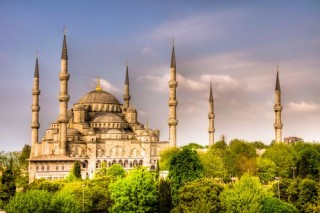How the geopolitical developments of Egypt affect the entire region
Ahmad Abul-Rahman in Egypt writes why major transformations in the Middle East will occur, which means turning away from Egypt.
Egypt is waging a fierce political war on every side, to varying degrees, and has to overcome enormous challenges. These changes could drag the country into swamps, but will not change the region's geography. Turkey has a foothold in Libya, and is using force to achieve its utopian dreams. In northern Egypt, Turkey also wants to draw a map that does not abide by the controls of international law. Ankara, Turkey's capital, has also sought to shuffle many cards, believing that battleship diplomacy will terrorise opponents and enable the acquisition of the wealth of a promising region.
In any case, Ankara's current leadership is one of the most prominent models that adopts an approach where the rules of life are overturned. Ankara has tested all of this in Libya at a time when it was overly involved in its security, maritime, economic and political interventions, and tried to break solid barriers, strike delicate balances, and over-trusted its ability to change what had become entrenched in the region.
Egypt was very patient with all of this and dealt wisely, confidently and rationally with the situation, and bet on the power of geopolitics. It knew Turkey would be unable to establish roots in Libya, where it wanted to be.
President Abdel Fattah El-Sisi, Egypt's president, drew the red line in Sirte and Al-Jufrah in Libya, and Turkey adhered to it, focusing on the power of geography before the power of politics. El-Sisi affirmed that his country will act in defence of its security in the event that the Sirte line is crossed in Libya. In a speech to the 75th session of the United Nations General Assembly on November 22, 2020, which was held virtually for the first time, due to the Coronavirus crisis, he said: "We have announced and reiterated here that continuing the fighting and crossing the red line represented by the Sirte-Jufrah line, Egypt will confront it in defence of its national security. And the safety of its people."
Today, many regional and international bodies have tried to resolve the crisis, and reject the continuation of mercenary armies. However, Turkey stands firmly in the eastern Mediterranean.
These moves prove the correctness of Egypt's vision. It also proves the importance of the geographical determinant in managing crises. What Egypt demanded in terms of limiting the growth of Turkey's role in Libya is gradually being realised. The agreements Egypt signed with the Accord Government in Tripoli, Libya, are being placed under the microscope for legal review by the national institutions in Libya, including the Libyan Parliament and the Libyan Presidential Council.
The international community began to press for the withdrawal of mercenaries. Meanwhile, people were searching for a formula to deal with the terrorists who were brought from different countries. The pursuit of a real political settlement to the crisis- one that was the focus of its attention, such as the standard of geography- has enabled Cairo to be a party to all initiatives, and close to all the meetings that were held.
In the far south, Ethiopia is working to replace what was settled in the public mind about international rivers, and is trying to impose its own concept of the Nile, whose waters used to flow for thousands of years along Egypt. In the end, Ethiopian Prime Minister Abiy Ahmed admitted, before the United Nations, that his country would not harm the two downstream countries, but would instead, seek understandings.
The attacks on the Palestinians in the Gaza Strip represent a new aggression, with the participation of those who wish to get rid of their burdens. Those who contemplate engaging Turkey, Qatar, and Iran at the expense of Egypt will discover that geopolitical factors stand in the way of their ambitions. Moreover, just as the location of Egypt enabled many colonial powers, it also helped to give it importance. It will also enable Egypt to stop the ambitions of those who wish to confront it, or plant their political and military feet in neighbouring areas, that are of direct importance to the country's national security.
The Palestinian cause has depended on several Arab and non-Arab countries, and none of them has dared to eliminate Egypt's role. All the reconciliation meetings from which Egypt was excluded did not last, because they were linked to regional agendas rather than to international geopolitics. Palestine understands this. As for those whose decisions are dependent on ideological interests, they need more time to absorb the lessons of history and what the power of geography has done.
This power increases as there is political leadership that knows the strategic components of the Egyptian state, the borders and the areas in which one can move. What is happening in the region, breaks one of the most important pillars on which Egyptian policy depends, that is its significant geopolitical position. This is why major transformations in the region will occur, which means turning away from Egypt.


Comments